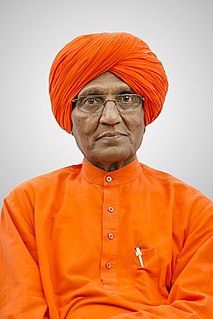A Quote by Eric Hoffer
It is compassion rather than the principle of justice which can guard us against being unjust to our fellow men.
Related Quotes
I regard it as a duty which I owed, not just to my people, but also to my profession, to the practice of law, and to the justice for all mankind, to cry out against this discrimination which is essentially unjust and opposed to the whole basis of the attitude towards justice which is part of the tradition of legal training in this country. I believed that in taking up a stand against this injustice I was upholding the dignity of what should be an honorable profession.
In contrast, compassion manifests in us as the offering of kindness rather than withdrawal. Because compassion is a state of mind that is itself open, abundant and inclusive, it allows us to meet pain more directly. With direct seeing, we know that we are not alone in our suffering and that no one need feel alone when in pain. Seeing our oneness is the beginning of compassion, and it allows us to reach beyond aversion and separation.
Why is discipline important? Discipline teaches us to operate by principle rather than desire. Saying no to our impulses (even the ones that are not inherently sinful) puts us in control of our appetites rather than vice versa. It deposes our lust and permits truth, virtue, and integrity to rule our minds instead.
Two things, Christian reader, particularly excite the will of man to good. A principle of justice is one, the other the profit we may derive therefrom. All wise men, therefore, agree that justice and profit are the two most powerful inducements to move our wills to any undertaking. Now, though men seek profit more frequently than justice, yet justice is in itself more powerful.
The practice of patience guards us against losing our presence of mind. It enables us to remain undisturbed, even when the situation is really difficult. It gives us a certain amount of inner peace, which allows us some self-control, so that we can choose to respond to situations in an appropriate and compassionate manner, rather than being driven by our disturbing emotions.
One of the most melancholy consequences of this habit of deferring to other nations, and to other systems, is the fact that it causes us to undervalue the high blessings we so peculiarly enjoy; to render us ungrateful towards God, and to make us unjust to our fellow men, by throwing obstacles in their progress towards liberty.






































